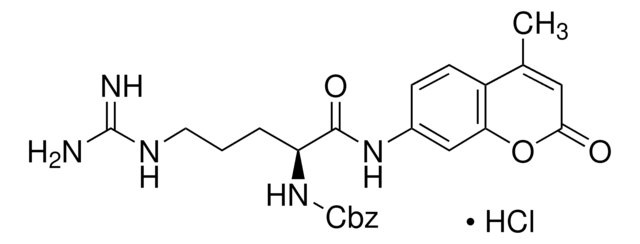M188
Maleic anhydride
99%
Sinónimos:
2,5-Furandione
About This Item
Productos recomendados
vapor density
3.4 (vs air)
vapor pressure
0.16 mmHg ( 20 °C)
assay
99%
autoignition temp.
870 °F
expl. lim.
7.1 %
bp
200 °C (lit.)
mp
51-56 °C (lit.)
SMILES string
O=C1OC(=O)C=C1
InChI
1S/C4H2O3/c5-3-1-2-4(6)7-3/h1-2H
InChI key
FPYJFEHAWHCUMM-UHFFFAOYSA-N
¿Está buscando productos similares? Visita Guía de comparación de productos
General description
The structure of maleic acid consists of four carbon molecules along with carboxylate groups on either ends, with a double bond between the central carbon atoms. The anhydride of maleic acid has five atoms in its cyclic molecule, the unsaturated bond undergoes free radical polymerization in the presence of an initiator.
Application
- In the grafting process of high-density polyethylene (HDPE) by the monomer microencapsulation technique, which enables the introduction of enhanced functionality and improved properties to the polymer for functional coatings, membranes, or surface treatments, adhesives, and coatings.
- In the functionalization of polylactic acid (PLA) and acts as a coupling agent in natural fiber biocomposites. The functionalization improves the compatibility and interfacial adhesion between PLA and natural fibers, leading to enhanced mechanical properties and expanded applications of the resulting biocomposite materials.
- Maleic anhydride may be used in the synthesis of unsaturated polyester resins and as a reactant in synthesizing important products such as agricultural chemicals, lubricant additives, and food acidulatents.
Physical form
signalword
Danger
hcodes
Hazard Classifications
Acute Tox. 4 Oral - Eye Dam. 1 - Resp. Sens. 1 - Skin Corr. 1B - Skin Sens. 1A - STOT RE 1 Inhalation
target_organs
Respiratory system
supp_hazards
Storage Class
6.1C - Combustible acute toxic Cat.3 / toxic compounds or compounds which causing chronic effects
wgk_germany
WGK 1
flash_point_f
217.4 °F - closed cup
flash_point_c
103 °C - closed cup
ppe
Eyeshields, Faceshields, Gloves, type P3 (EN 143) respirator cartridges
Certificados de análisis (COA)
Busque Certificados de análisis (COA) introduciendo el número de lote del producto. Los números de lote se encuentran en la etiqueta del producto después de las palabras «Lot» o «Batch»
¿Ya tiene este producto?
Encuentre la documentación para los productos que ha comprado recientemente en la Biblioteca de documentos.
Los clientes también vieron
Artículos
Atomic layer deposition meets various needs including semiconductor device miniaturization and nanoparticle coating.
Atomic layer deposition meets various needs including semiconductor device miniaturization and nanoparticle coating.
Atomic layer deposition meets various needs including semiconductor device miniaturization and nanoparticle coating.
Atomic layer deposition meets various needs including semiconductor device miniaturization and nanoparticle coating.
Nuestro equipo de científicos tiene experiencia en todas las áreas de investigación: Ciencias de la vida, Ciencia de los materiales, Síntesis química, Cromatografía, Analítica y muchas otras.
Póngase en contacto con el Servicio técnico











